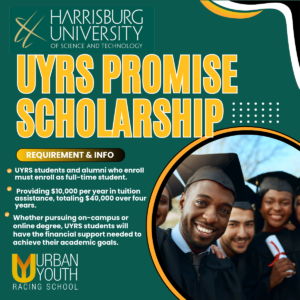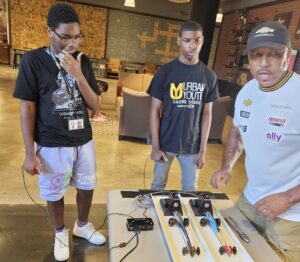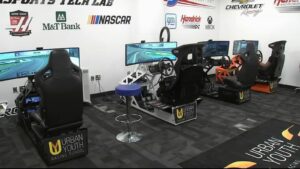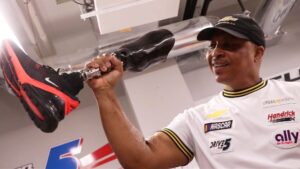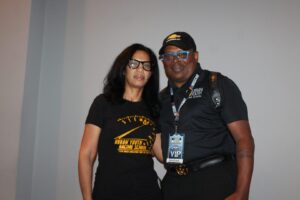Students complete Naval Engines Design Program at NSWCCD-SSES
By Joseph Battista, NSWCCD-SSES Public Affairs, NAVSEA
[dropcap]T[/dropcap]hirty middle and high school students received certificates of completion at the final class of the six-week Naval Engines Design Program at Naval Surface Warfare Center Carderock Division – Ship Systems Engineering Station (NSWCCD-SSES) Dec. 14. The unique course provided students from underrepresented segments of the population hands-on training, combined with classroom instruction, on various types of naval engines.
Mike Zekas, Propulsion and Power Systems Division head, organized the program in partnership with the Urban Youth Racing School, and funded by the Office of Naval Research (ONR), to provide an organized approach to science, technology, engineering and math (STEM) education.
“I’m always impressed by the enthusiasm of these students,” said Zekas. “Their eyes widen when they first see the size of the engines the Navy uses. It’s a great thing to experience each year.”
This is the third year of the program where engineers volunteer their time to teach students about diesel, gas turbine and steam engines, as well as fuel injection, combustion analysis, maintenance, shock testing, borescope inspections, alternate fuels, lubricating oils, and 3-D modeling.
Students received classroom instruction from professional engineers, did oral presentations, and were assigned homework each week. The final class included turning in a group paper of 10-15 pages and a 10-15 minute presentation where they determined which type of Navy ship to use based on a real-world situation. Some students even designed their own vessel, which utilized one of the three propulsion systems found on Navy ships.
The highlight of the program was week three when students received hands-on instruction with gas turbines. They used a flexible borescope (a small camera inserted into the engine) to inspect the inside of the engines, identified the various engine parts, and performed a compressor blade change.
“Getting to see and work on the engines that we learned about in the classes was a great experience,” said Kiana Butler, an NEDP student.
More than 20 NSWCCD-SSES engineers and scientists volunteered their time to mentor the students over the six weeks. Engineers Dan Caguiat, Jennifer Connor, and David Dixon, from Propulsion and Power Systems Division, worked with the students during the hands-on training.
“It was rewarding to successfully generate enthusiasm for the theory in the classroom, and then allow students to see and touch a real gas turbines,” said Caguiat, a mechanical engineer who has worked at NSWCCD-SSES for 17 years. “This was a particularly enjoyable class to teach because these kids are highly intelligent and motivated.”
Caguiat, who also teaches Physics at Rowan University, said he did not mind getting up early on Saturdays because it provided him an opportunity to teach a new subject to an upcoming group of students.
“It was wonderful to work with such highly motivated and intelligent young men and women,” said Jennifer Connor, a mechanical engineer. “I have always had a love of learning and teaching. This was the perfect opportunity to teach about what we do to the next generation.”
According to Zekas, the goal of the program is to expose students to the types of work performed by engineers and to encourage them to pursue STEM education and careers.
William H. Ellis, Office of Naval Research (ONR) Historically Black Colleges and Universities/Minority Institutions program director, who attended the final class, praised the students for their informative presentations, and he encouraged the students to continue their pursuit of STEM education.
“It is very easy for children to go through the motions in education, especially on a Saturday morning,” said David Dixon, a mechanical engineer who has worked at NSWCCD-SSES for 17 years. “However, these kids showed tremendous discipline. I was impressed with them all.”
Zekas said he hopes the partnership with UYRS will continue so a new group of eager young minds can learn about naval engines next year.
-NAVSEA-



